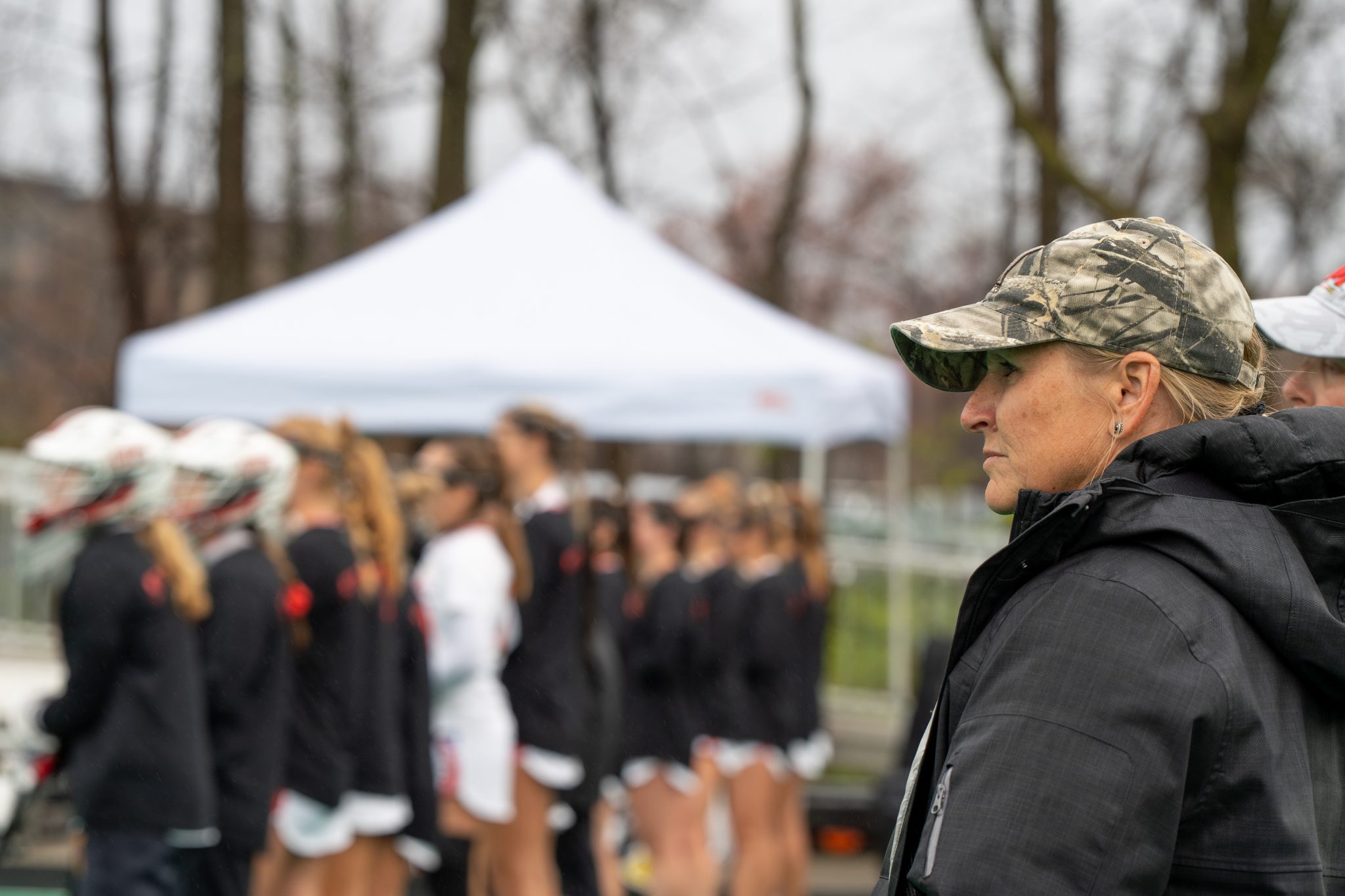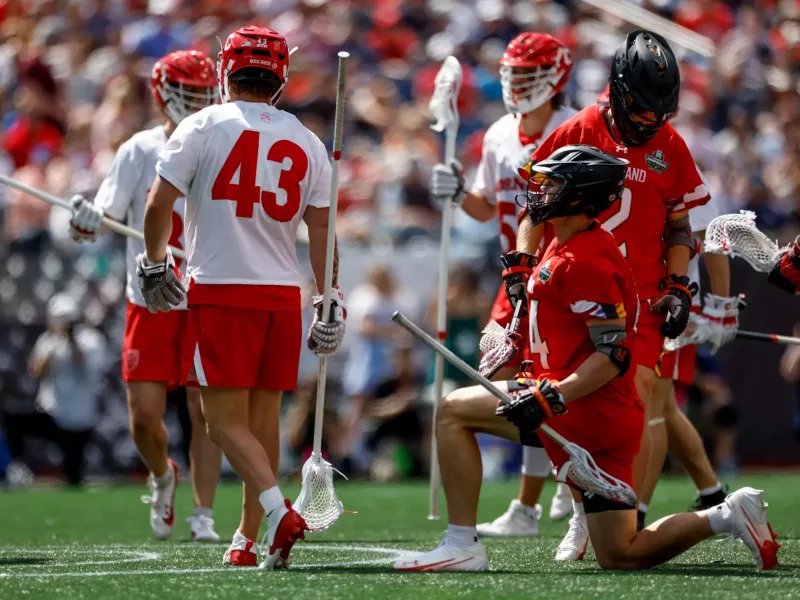Maryland women’s lacrosse’s highly touted 2019 recruiting class entered their fifth season in College Park chasing an elusive national title.
A nine-goal outburst by Florida in the first 13 minutes of the Terps’ NCAA quarterfinal matchup against the Gators ended that search as Maryland lost, 15-9. Graduate students Shaylan Ahearn, Hannah Leubecker and Emily Sterling — who line the record books of the illustrious program — couldn’t add to the Terps’ Division I best 14 titles.
A four-year championship drought — excluding the 2020 season when the tournament wasn’t held — signals that coach Cathy Reese’s team isn’t the dominant force it used to be. Other programs like Northwestern and Boston College — the previous two title winners — are challenging Maryland to lead the sport.
The Terps’ exit from the NCAA tournament made it four missed national championship games in a row since 2019, and they’ve only been back to the Final Four once since then. More teams are catching up to Maryland’s prowess as the Terps struggled in 2024 in the midst of reduced attacking output throughout the season.
Maryland’s attack featured returners Libby May, Eloise Clevenger and Leubecker. The trio led the Terps’ offense, combining for 114 scores. Leubecker netted 54 of those and Eloise Clevenger’s 52 assists was the 12th best total in the country.
But it wasn’t a good enough clip to advance further in the NCAA tournament.
[Maryland women’s lacrosse ends season with 15-9 loss to Florida in NCAA quarterfinals]
Maryland ended the season shooting just 39 percent, its lowest rate in more than 15 years, excluding the season cut short due to COVID-19 where the team played only six games.
“We didn’t shoot well today either. That’s kind of been something I’ve been talking about … all season long,” Reese said after the Florida loss.
The Terps eclipsed the 50 percent mark only three times in wins over William & Mary, Princeton and James Madison. They couldn’t maintain the attacking consistency for the majority of the season. It resulted in the worst home record for a Maryland team under Reese, going 5-6.
Maryland suffered its first home loss to Florida in the regular season in February. Its second came a month later to Penn amid a lowly nine goals. Losses to Northwestern, Penn State and Rutgers featured offensive slumps of sub-40 percent shooting.
The Terps’ season ended with Reese’s record-breaking sixth home loss in a single year to Florida. They posted a season-low 25 percent shooting percentage in the six-goal defeat.
“You just make plays one play at a time and we just didn’t make enough of them,” Reese said.
Despite offensive shortcomings, Maryland’s defensive unit led the way.
It finished the season with the eighth-best scoring defense in the nation. The Terps conceded just under nine goals in a game led by Meghan Ball and Brianna Lamoureux with Sterling as the anchor in goal.
[Maryland women’s lacrosse tops James Madison, 17-7, advances to NCAA tourney quarterfinals]
Ball caused a team-high 40 turnovers while also collecting 77 draw controls, only trailing Ahearn’s 111. Sterling posted a 52 percent save rate — the second time in her career she saved more than half the shots she faced.
Stout defensive stands late in games against Denver, Ohio State and Michigan propelled Maryland to a perfect 9-0 record in road games.
The Terps’ experience dictated the success on the field. A senior or graduate student-led Maryland in every counting stat.
But despite a plethora of skilled veterans that lined the entire field, the Terps couldn’t match the same results that previous classes achieved. They will leave winning one Big Ten regular season and tournament title.
“There’s just so much to be proud of over the last five years,” Reese said. “Sometimes that gets lost with our program a little bit.”
The Terps’ graduating class opens space for talented underclassmen Maisy Clevenger and Maggie Weisman to get more playing time next season. Maisy Clevenger tallied 11 assists and 18 points while Wesiman scored 12 goals.
Kori Edmondson returns off a 38-goal season, while Kennedy Major and Neve O’Ferrall lead a defensive unit that will lose its starting goalie and two graduate students.
They will all be a part of the next crop of Maryland players to try and return the storied program to the pinnacle of the sport.



